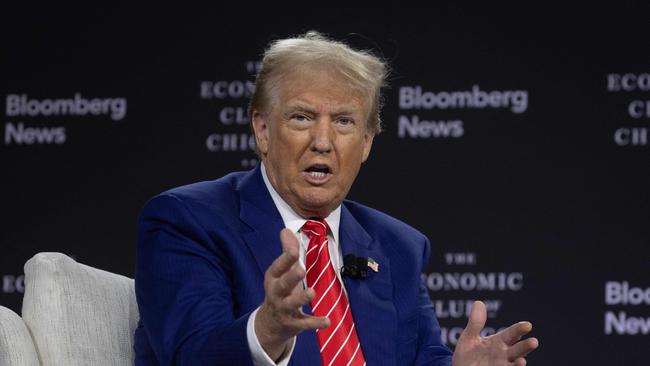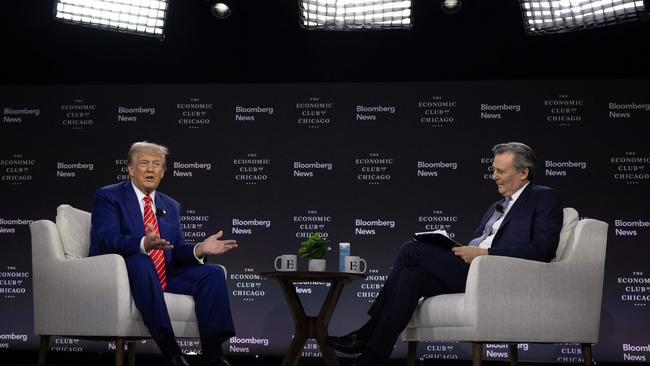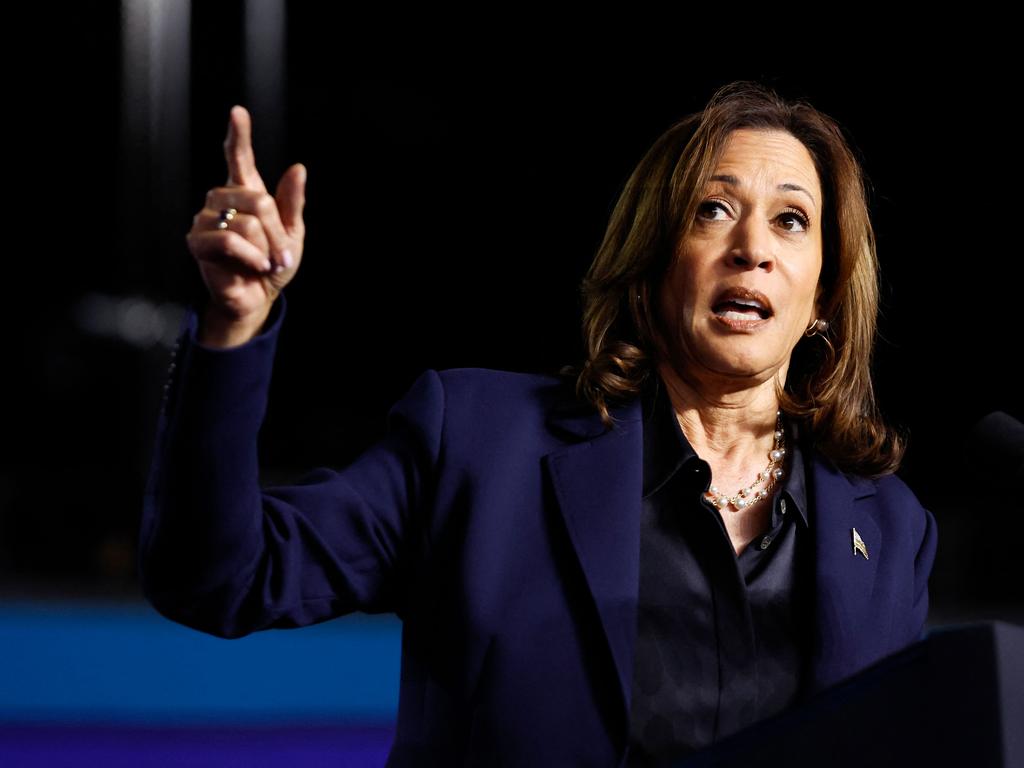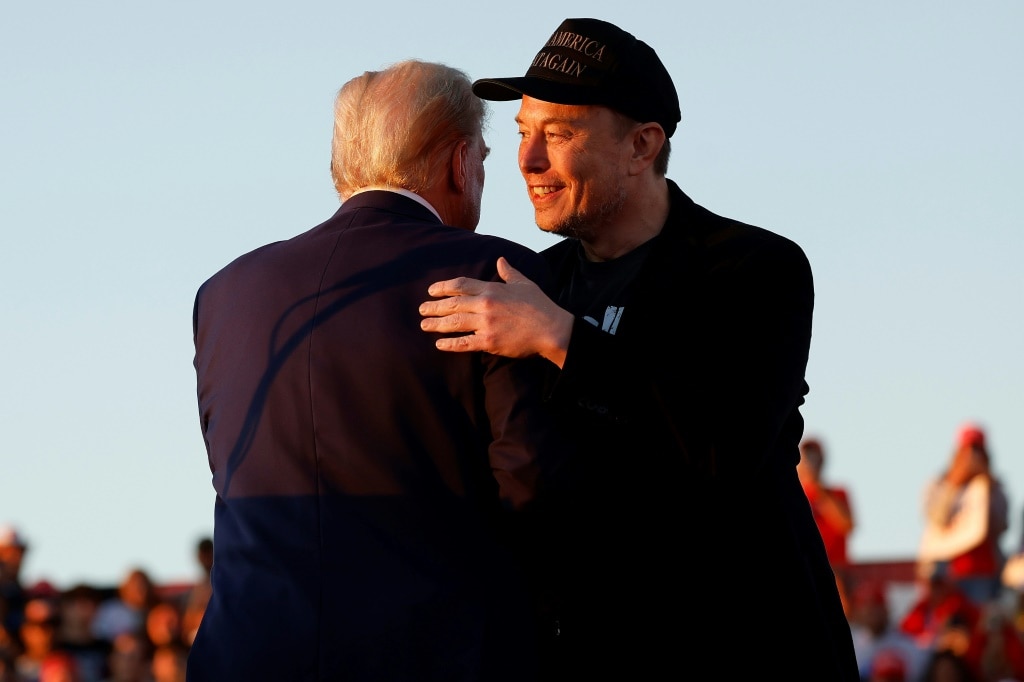‘The most beautiful word in the dictionary is tariff’
Donald Trump has promised to whack at least a 10 per cent tariff on everything coming into the US, a policy he believes will solve its economic problems and help win him a second term.

“To me, the most beautiful word in the dictionary is tariff, it’s my favourite word; it needs a public relations firm to help it,” he added, infuriating economists and Democrats, who later assailed the Republican presidential candidate as an economic troglodyte who risked inducing a 1930s trade war-induced global depression if he followed through with his plans.
Indeed, Trump has promised to whack at least a 10 per cent tariff on everything coming into the US, and up to 2000 per cent on certain imports, such as cars made in Mexico – a particular bugbear of his given the devastation the US car industry had endured for decades.
And the US president has the power to do so without congressional approval.
How concerned and angry should the rest of the world be, especially Australia, which relies heavily on a stable, relatively free trade environment to underpin its prosperity?
Concerned, a little; angry, not at all. A 10 per cent universal flat tariff, which Trump appears committed to, shouldn’t up-end global trade anywhere like the notorious Smoot-Hawley Tariff Act of 1930, which led to average US tariffs of about 60 per cent and prompted retaliation by other nations.
Trump revealed in his interview he was more interested in using tariffs, at least the mooted very high ones, as a threat not to increase tariffs on US businesses and to coax them to bring their manufacturing operations back to the US. He wanted to play “chess, not chequers” with other nations, as he put it.
“What you have to do is build your plant in the United States and you don’t have any tariffs,” Trump said, regaling the Chicago audience with an exchange he had with French President Emmanuel Macron over wine duties when Trump was president.
“Every bottle of wine and champagne that you send into the United States, effective immediately, I’m charging you 100 per cent on every bottle of wine and champagne,” he told an anxious Macron, who promptly reversed an impending tariff France had been proposing, an increased tax on US businesses in France.
Moreover, after Trump bragging about the beneficial effects of tariffs for the US, it’s hard to see a new Republican administration wanting to be responsible for a devastating global trade war if it wants to be re-elected in 2028. Political and economic reality would be a powerful handbrake on a pragmatic Trump. “I agree it’s going to have a massive effect, positive effect. It’s going to be a positive, not a negative,” he said, and it certainly would want to be if JD Vance were going to have any chance of election in 2028.
Americans also shouldn’t worry about scary models that predict Trump’s tariff will operate like a giant sales tax, rekindling poisonous inflation. Tariffs, of course, are a tax collected by importers, who try to pass on the cost to domestic consumers.
The extent to which prices for a given product would rise in the US depends on the market power of the foreign exporter: are there already competing manufacturers in the US, the prices of whose products in effect provide a price ceiling for any imports? And the US is the biggest national consumer market in the world; most exporters would be willing to take a hit to their margins to gain access to it.
There’s no question that in traditional economic theory, free trade optimises average economic growth across nations as producers focus on what they are good at, taking advantage of whatever natural endowments they have access to – but this assumes an awful lot.
For a start, no nation pursues purely free trade. And it would be news to rich Asian nations, such as Japan and South Korea, that zero tariffs underpinned their extraordinary explosion in wealth after World War II when it was quite the opposite, in fact.
Moreover, trade theory assumes the jobs that emerge from a given tariff structure are equally valuable: nuclear scientists have the same economic and national security implications as Uber drivers. That is obvious nonsense in a world of competing states, especially one where the US is discovering it has little capacity to increase its munitions production while supposedly backward Russia, with less than half the population, can produce many multiples at short notice.
As much as Trump obsesses about car manufacturing, it’s an industry that becomes far more useful during wartime than delivering food or trading foreign-exchange derivatives.
“What is The Wall Street Journal now? They’ve been wrong about everything,” Trump confidently exclaimed in his interview with Micklethwait. Indeed, 16 Nobel prize-winning economists earlier this week put their names to a public letter warning inflation could skyrocket if Trump won. Letters from grandstanding economists have had a sorry history ever since the 1980s.

They weren’t concerned about the extraordinary build-up of leverage before the financial crisis of 2008, which was devastating for the US and other nations. Mainstream economists, pathetically, didn’t forecast any increase in inflation when governments pumped trillions of new dollars into their economies and wrecked supply chains during the Covid pandemic.
In short, they collectively and obviously, given the above, have little idea how economies work in any way worthy of serious respect.
If anyone is worried about Trump’s tariffs, they at least shouldn’t be angry. Other nations on average have much higher tariff and sneaky non-tariff barriers than the US. As Trump constantly complains, it’s hard to buy a Ford in Germany and Japan, or American farm produce in France, because these nations ensure a highly favourable market for their domestic producers.
“Communist China levies higher tariffs on 10 products for every one Chinese product that is subject to a US applied higher tariff, India’s ratio is even higher at 13 to one,” writes Trump’s former trade adviser Peter Navarro in the Heritage Foundation’s Project 2025 policy manifesto.
“America gets fleeced every day in the global marketplace both by a predatory Communist China and by an institutionally unfair and non-reciprocal World Trade Organisation,” he writes, offering a battery of statistics on comparative tariffs. Malaysia, for instance, applies a 40 per cent tariff on American rice, the US 6 per cent in return.
Despite the elite disdain, Trump received a standing ovation after his interview from the Chicago business audience.
Trump’s plans on trade reflect his broader geopolitical philosophy: America under his future administration is going to be a “player” just like the other big countries.
For good or ill, he no longer wants America to set an example, at least to the extent it costs money and economic development.
It’s the economic parallel of his foreign policy, which would insist NATO and other nations paid more for their own defence. If Trump wins next month it will be as much a nervous time for corporate boards around the world as it will be for national defence ministries. But fears of a Trump-induced global economic collapse aren’t founded, just as they proved totally wrong the first time Trump was elected in 2016.






“It must be hard for you to spend 25 years talking about tariffs as being negative and then have somebody explain to you that you’re totally wrong,” Donald Trump told an exasperated John Micklethwait, Bloomberg’s editor in chief, this week during a lengthy interview in Chicago.